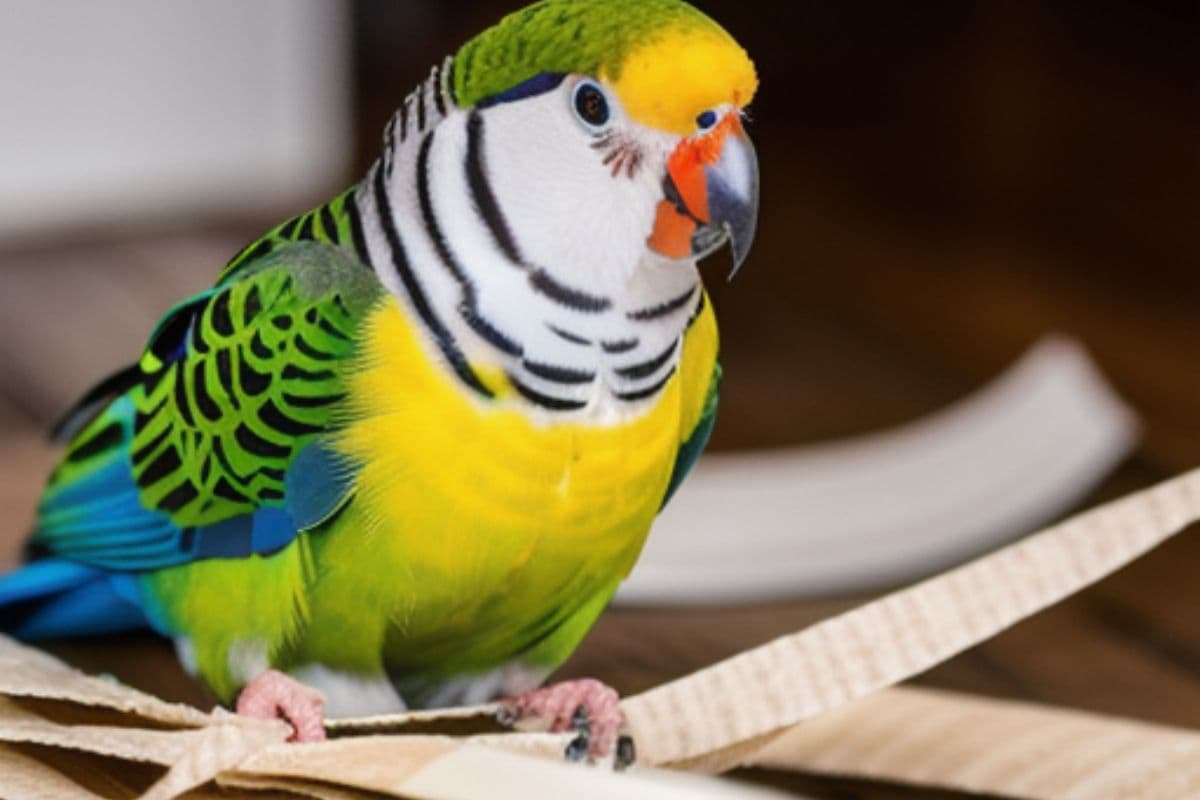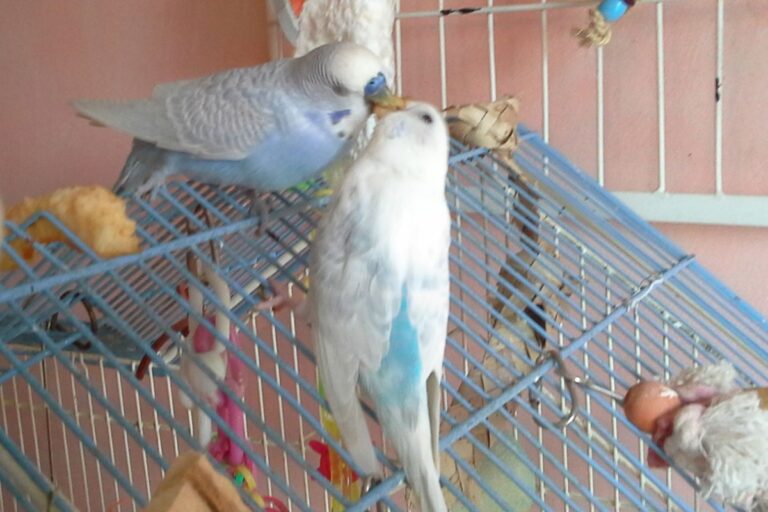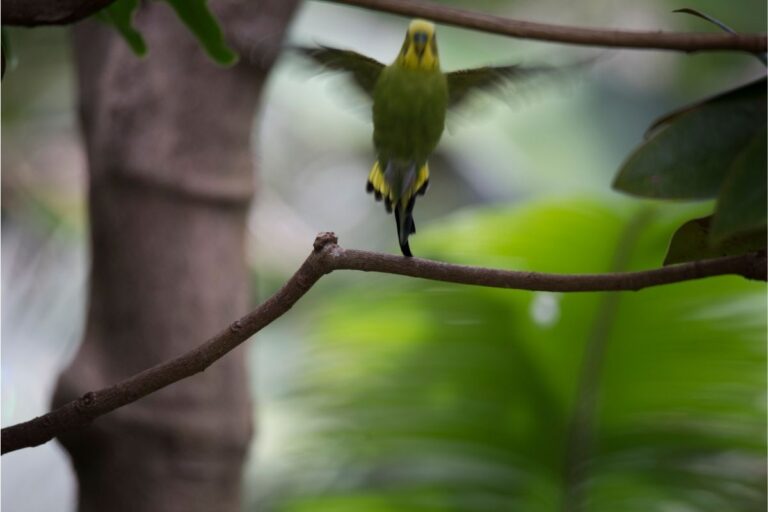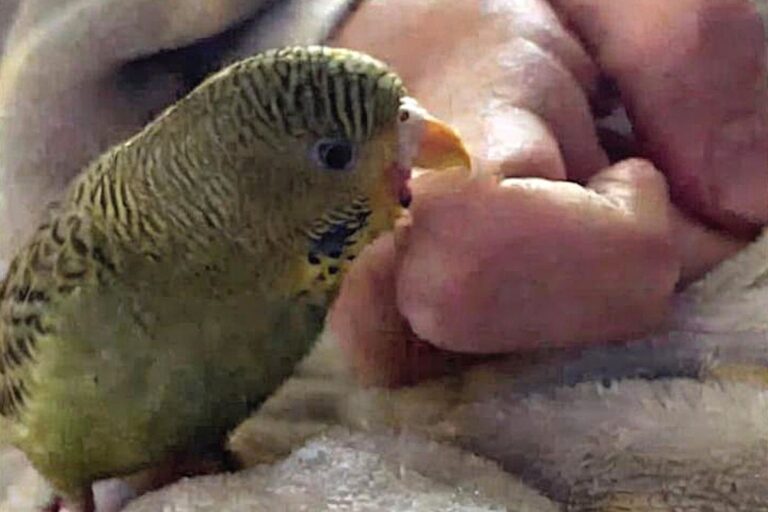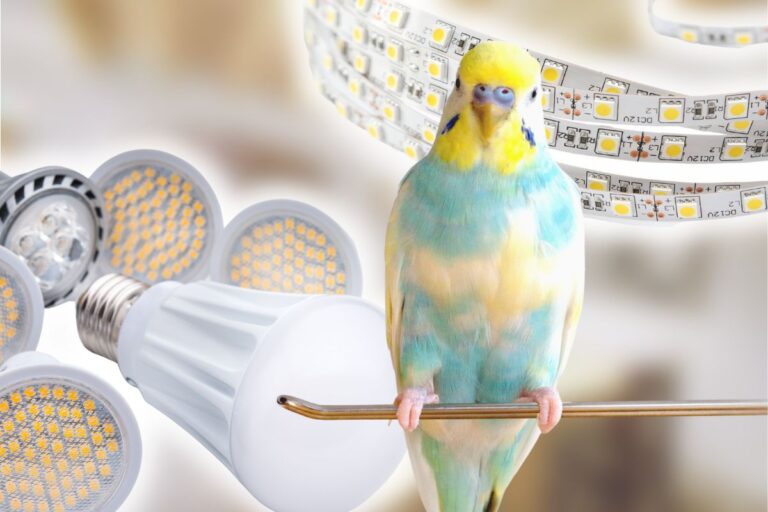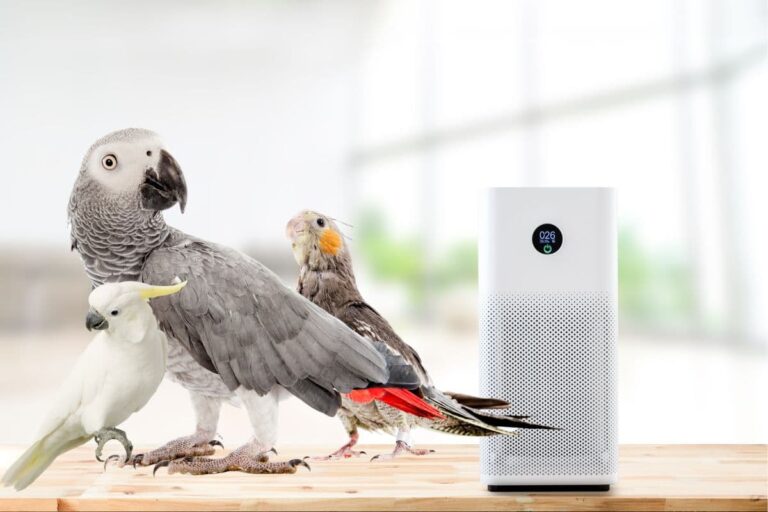Why Does My Parakeet Keep Eating Paper
Disclosure: The opinions expressed in this post are my own. This post may also contain affiliate links, which means that I will receive a commission if you decide to purchase through my links, at no additional cost to you. As an Amazon Associate, I earn from qualifying purchases.
Have you ever caught your parakeet munching on pieces of paper? Do they constantly nibble on your mail or shred your important documents? And does it frustrate you to constantly find bits of shredded paper in your bird’s cage. So why would a bird want to eat paper?
As it turns out, there are a few reasons why your parakeet might be snacking on paper. Some of them are harmless, while others could be a sign of a more serious issue. In this article, we’ll explore the possible reasons behind this behavior and what you can do to keep your feathered friend healthy and happy. So, if you’ve been wondering why your parakeet keeps eating paper, keep reading!
Why Do Parakeets Chew on Paper?
Parakeets may chew on all kinds of paper, such as toilet paper and cardboard boxes, for a variety of reasons—from boredom due to lack of stimulation in their environment, to attention-seeking behavior. Let’s take a look at some of the common reasons as to why parakeets chew on paper.
1. It’s a Natural Instinct
Parakeets are known to have a natural instinct to chew on things, including paper. In the wild, they use this behavior to build nests and create a comfortable environment for themselves and their offspring.
However, in captivity, this behavior can become a problem if they start eating harmful materials like toxic ink or glue. It’s important to provide them with safe chew toys and other materials that mimic their natural instinct to chew.
2. Out of Boredom or Curiosity
Parakeets are intelligent birds and need mental stimulation to prevent them from becoming bored and destructive.
If your parakeet is not provided with enough toys or activities to keep them occupied, they may resort to chewing on paper as a way to pass the time.
To prevent boredom, make sure your parakeet has plenty of toys to play with in its bird cage and rotate them frequently to keep things interesting. You can also provide them with puzzles or foraging toys to keep their minds active.
Spending time interacting with your parakeet, such as playing games or training them, can also prevent boredom and keep them from resorting to destructive behaviors.
3. Trying to Make a Nest
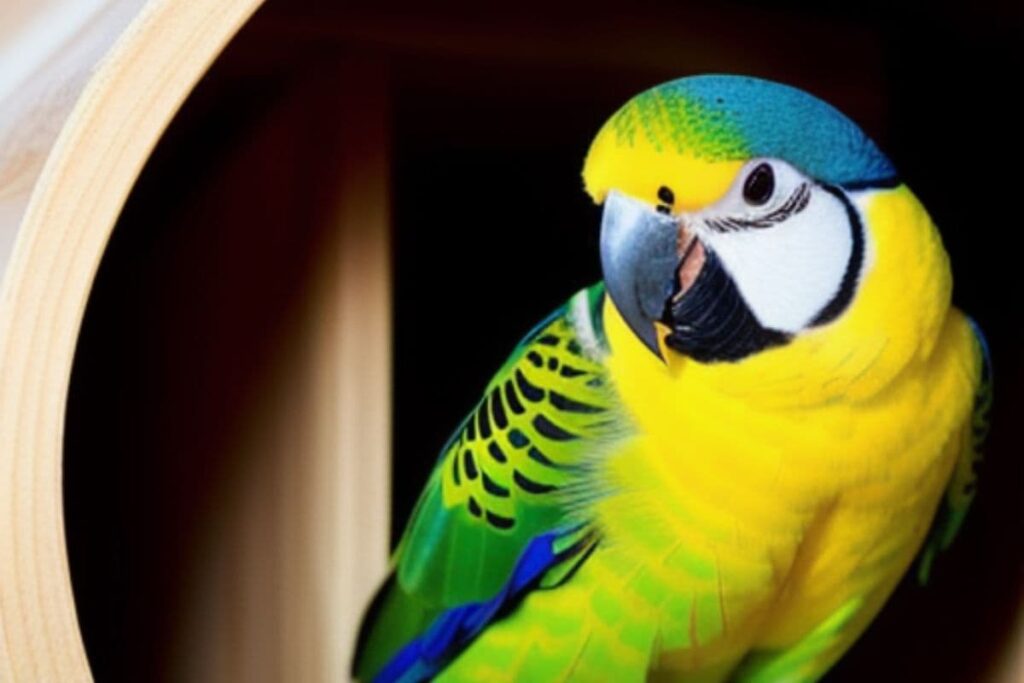
Parakeets are known for their nesting behavior, and eating paper is often a sign that they are trying to build a nest. Providing your parakeet with a suitable nesting box can help redirect their paper-eating behavior.
Make sure the nesting box is the appropriate size for your parakeet and is made of safe materials, such as untreated wood. You can also provide nesting material, such as shredded paper or coconut fibers, to encourage your parakeet to build their nest in the designated area.
4. They Simply Love to Chew
One reason why your parakeet may keep eating paper is due to their love of chewing. Parakeets have a natural instinct to chew and gnaw on objects, which helps keep their beak healthy and strong.
It’s important to note that some types of paper, such as newspaper, can be harmful to your parakeet if ingested. Make sure that these types of paper are not easily accessible to your parakeet for them to chew on.
Some parakeets really enjoy the taste and texture of paper. If you feel that your parakeet is eating paper because it enjoys the taste or texture, you might want to try giving it something else to chew on, like a blunt wooden kabob skewer or a piece of fruit tree branch.
5. Seeking Attention
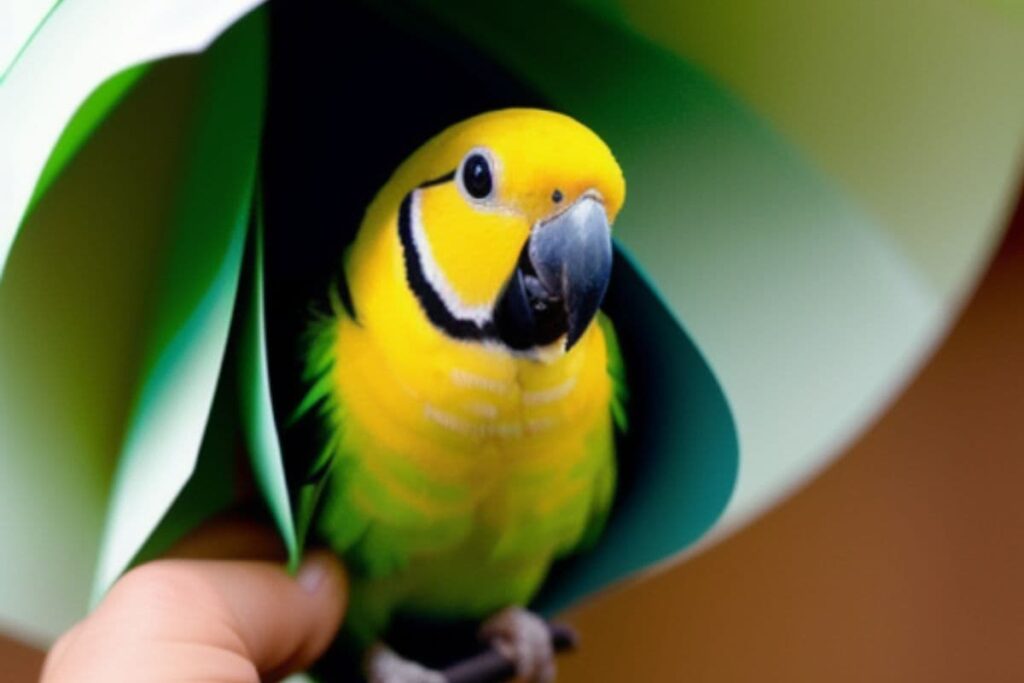
One possible reason why your parakeet keeps eating paper is that it is seeking attention. Birds are social creatures and they crave interaction with their owners. If your parakeet feels neglected or bored, it may resort to destructive behaviors like chewing on paper or other objects.
To address this issue, try spending more time with your parakeet each day as a responsible bird owner. Offer it toys, perches, and other forms of stimulation to keep it entertained. You may also want to consider getting another bird as a companion for your parakeet, as this can provide additional socialization and stimulation.
6. Behavioral Issues
If your parakeet continues to eat paper despite your efforts to provide attention and a healthy diet, it may be a sign of a deeper behavioral issue. Consider seeking the advice of a professional animal behaviorist who can provide specific guidance and strategies for addressing your bird’s behavior.
Is Eating Paper Harmful for Parakeets?
While small amounts of paper are unlikely to cause harm, consuming large quantities can lead to digestive issues and potential blockages in their digestive tract.
If your parakeet does ingest a significant amount of paper or other non-food items, it’s important to monitor their behavior and contact a veterinarian if you notice any signs of illness or discomfort. In some cases, surgery may be necessary to remove a blockage from their digestive system.
Overall, while small amounts of paper are generally not harmful for parakeets, it’s important to prevent excessive consumption and address any underlying issues that may be causing this behavior.
When Does Paper Eating Become a Real Problem?
Parakeets are known for their curious and playful nature, which can sometimes lead them to eat things they shouldn’t. While it’s common for them to nibble on paper occasionally, it can become a real problem if it turns into a habit. As mentioned, the main concern is that ingesting paper can cause digestive blockages and other health issues for your bird.
If your parakeet continues to eat paper despite your efforts, it may be a sign of an underlying health issue or nutritional deficiency. Consult with your veterinarian to rule out any medical problems and to ensure that your bird is getting a balanced diet.
In some cases, paper eating can also be a sign of boredom or stress. Make sure that your parakeet has plenty of social interaction and mental stimulation, such as regular playtime and access to a variety of toys and activities.
If you’re still struggling to curb your parakeet’s paper-eating habit, consider consulting with a bird behavior specialist. They can provide guidance on ways to modify your bird’s behavior and promote a healthier, happier lifestyle.
Tips for Preventing Paper Consumption
If your parakeet has a habit of eating paper, there are a few tips you can follow to prevent this behavior. First, make sure your bird has plenty of appropriate toys and chewable items to keep them occupied. This can include wooden toys, mineral blocks, and bird-safe ropes.
You can also try offering your parakeet a variety of fresh fruits and vegetables as a healthy alternative to paper. This will give them something else to chew on and provide important nutrients for their diet.
Another option is to provide your bird with a foraging box or puzzle toy. These types of toys encourage your bird to search for food or treats, which can help distract them from paper consumption.
If your parakeet continues to eat paper despite these preventative measures, it may be a sign of an underlying health issue. In this case, it’s important to consult with a veterinarian to rule out any medical conditions and determine the best course of action.
Final Words
It’s important to understand that paper-eating behavior in parakeets can have multiple causes. While it may seem harmless at first, it can lead to serious health issues if left unchecked. Always make sure your bird has access to a variety of safe and healthy toys and treats, and consult with a veterinarian if you have any concerns about their behavior or health. Remember, a happy and healthy parakeet is a wonderful addition to any home!



